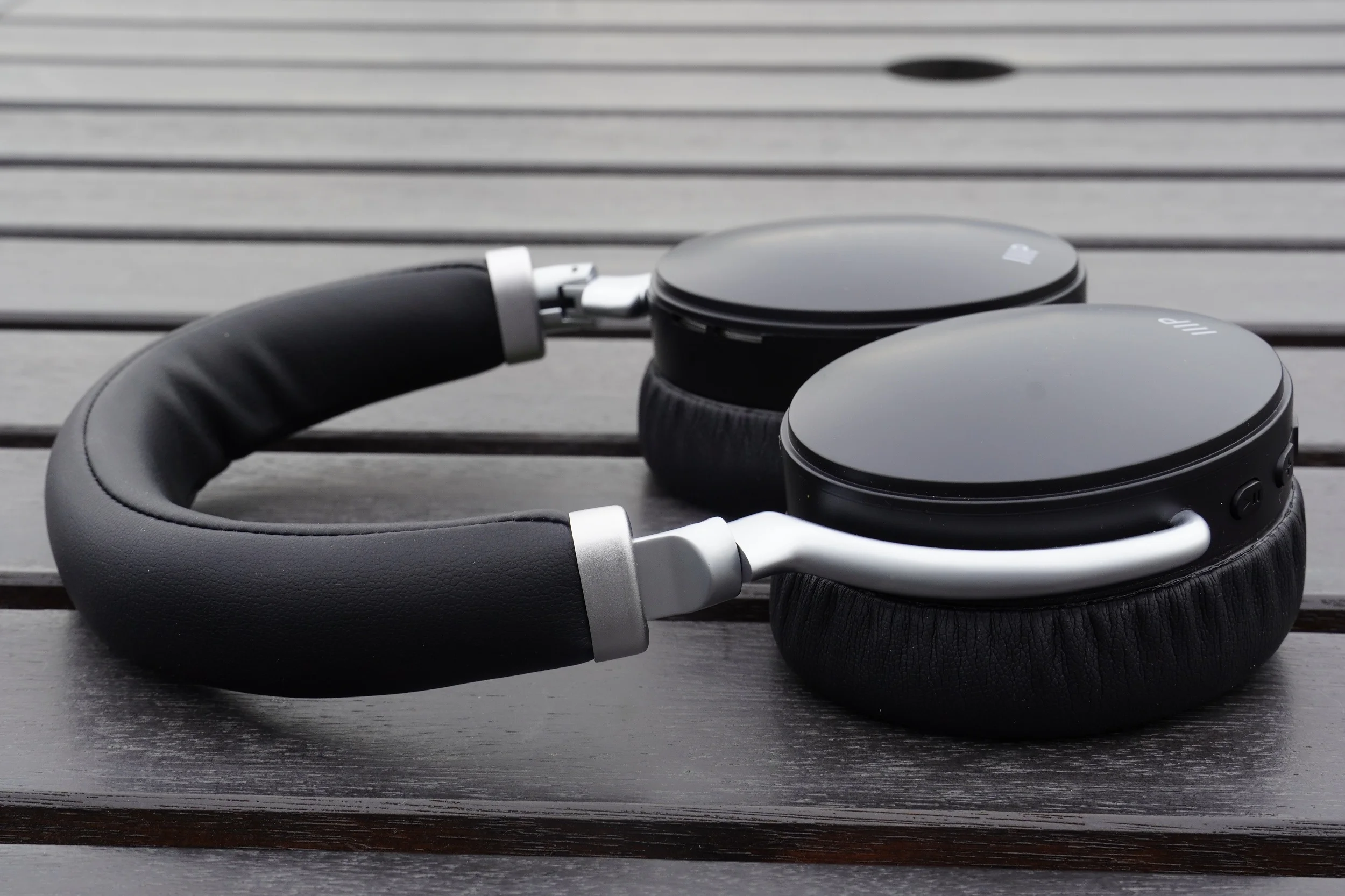Introduction
When it comes to working in environments where heavy machinery and equipment are used, communication can be a challenge.
The loud, continuous noise of engines, mechanical movements, and other equipment can make it difficult to hear or be heard. This is where having the right Bluetooth headset comes into play. A high-quality Bluetooth headset can not only help block out the noise but also provide crystal clear communication.
However, finding the right headset for heavy equipment operation is not the same as finding one for casual use. These headsets need to withstand harsh conditions, offer long-lasting comfort for extended hours, and ensure that users can hear and speak clearly.
In this guide, we will explore the best Bluetooth headsets for heavy equipment operators, focusing on the most important features such as noise cancellation, durability, and battery life. We’ll also provide a detailed review of the top 5 headsets designed specifically for these demanding environments.
Key Features to Consider for Bluetooth Headsets for Heavy Equipment Operators
Choosing the right Bluetooth headset for heavy equipment work requires more than just picking the most popular or expensive model. Operators face unique challenges that require specialized features in their headsets. Here are the key considerations to keep in mind:
Noise Cancellation
Noise cancellation is one of the most important features for anyone working in a noisy environment. Heavy equipment can generate constant, overwhelming noise, which can make communication impossible. Active noise cancellation (ANC) technology works by blocking out external sounds, allowing the user to focus on communication without being distracted by background noise.
Some headsets also come with passive noise cancellation, which involves ear cups that physically block sound. Both types are essential for clear communication in noisy environments.
Durability and Build Quality
Heavy equipment operators often work in rough conditions, meaning their headsets need to be durable and robust. Look for models that are built to last, with features such as impact-resistant materials, reinforced headbands, and water or dust resistance. These factors ensure that the headset can survive drops, exposure to elements, and general wear and tear. Some headsets are even certified to meet military-grade standards, offering even more assurance of long-lasting performance.
Comfort and Fit
Since operators may wear their headsets for long hours, comfort is a key concern. A headset that fits poorly can cause discomfort or even pain after a few hours of use. Look for adjustable headbands, padded ear cups, and lightweight designs that won’t strain the head or ears. Comfort is particularly important for operators who need to focus on their tasks for extended periods, making it easier to wear the headset without distraction.
Battery Life
Battery life is another critical factor, especially for operators who work long shifts without access to charging stations. A good Bluetooth headset should have a battery life of at least 10-15 hours on a single charge. Some models offer quick charging features that provide hours of use after just a few minutes of charging, which can be very handy during busy workdays.
Microphone Quality
A headset with poor microphone quality defeats the purpose of having a good headset. For heavy equipment operators, a clear microphone that picks up the user’s voice without interference from background noise is essential. Look for headsets with noise-canceling microphones or boom mics, which are designed to isolate the user’s voice even in noisy environments.
Connectivity Range
Finally, consider the connectivity range. Operators often move around large areas, and it’s important that their Bluetooth headset can maintain a strong connection to their phone or communication device even at a distance. Some high-end Bluetooth headsets offer a range of up to 300 feet, which can be a lifesaver in environments where the user needs mobility without losing connection.
Top 5 Bluetooth Headsets for Heavy Equipment Operators
Bose Noise Cancelling Headphones 700
Bose is well-known for its superior noise-canceling technology, and the Bose 700 is no exception. Designed for both comfort and performance, these headphones offer top-tier ANC that can handle even the loudest environments, making them perfect for heavy equipment operators. The plush ear cups and adjustable headband ensure that the headset remains comfortable even during extended wear. The 20-hour battery life also ensures that it can last through long work shifts without needing a recharge.
BlueParrott B450-XT
The BlueParrott B450-XT is specifically designed for use in noisy environments, making it a top choice for heavy equipment operators. With its exceptional noise-canceling microphone and rugged design, this headset can withstand tough conditions while providing clear communication. The BlueParrott app allows for custom button programming, while the headset itself boasts a long battery life of up to 24 hours on a single charge. It also offers an impressive 300-foot Bluetooth range, making it ideal for workers who need to move around freely.
Sena Tufftalk Lite
The Sena Tufftalk Lite is a heavy-duty Bluetooth headset built with industrial environments in mind. Its over-the-ear design offers great passive noise cancellation, while the boom mic ensures clear communication. This headset is both water and dust-resistant, making it ideal for outdoor use in harsh environments. With a range of up to 800 meters and a battery life of up to 15 hours, the Sena Tufftalk Lite is one of the best options for those who need reliable long-distance communication.
Plantronics Voyager 104
The Plantronics Voyager 104 is designed for truckers and other professionals who work in loud environments. Its over-ear design and padded headband provide comfort during long shifts, while its noise-canceling microphone ensures that communication is clear even in the loudest conditions. The Voyager 104 is also built to last, with a rugged, water-resistant design that can handle tough working environments. With up to 24 hours of battery life, this headset is perfect for long workdays.
AfterShokz OpenComm Bone Conduction Headset
The AfterShokz OpenComm is a bone conduction headset that offers a unique solution for heavy equipment operators. Unlike traditional headsets that cover the ears, this model leaves the ears open, allowing the user to hear both their communication and their surroundings. This is particularly useful for operators who need to stay aware of their environment. The OpenComm features a noise-canceling boom microphone and offers up to 16 hours of talk time, making it a versatile option for various working conditions.
Why Noise Cancellation Matters for Heavy Equipment Operators
Noise cancellation is a crucial feature for anyone working in loud environments, but for heavy equipment operators, it’s more than just a luxury—it’s a necessity. The constant roar of engines, the clanging of metal, and other industrial noises can make communication difficult, if not impossible, without noise-canceling technology. This section will delve into the importance of both active and passive noise cancellation and how they enhance communication in these noisy settings.
Choosing the Right Fit for Long Hours
Comfort is key when it comes to selecting a Bluetooth headset for heavy equipment operation. Long shifts mean that operators will be wearing their headsets for hours on end, and an uncomfortable fit can lead to distractions, discomfort, or even injury. This section will explore the different design features that contribute to comfort, such as adjustable headbands, ear cup padding, and lightweight materials, and offer tips on finding the right fit for prolonged use.
Step 3: Q&A Section
Q1: Why is noise cancellation important for heavy equipment operators?
Noise cancellation helps block out the constant, loud sounds from machinery, allowing operators to focus on communication and reduce ear strain.
Q2: How long should the battery last on a Bluetooth headset for heavy equipment use?
Ideally, a battery should last at least 10-15 hours to cover long shifts. Some models even offer 20-24 hours of battery life, making them more suitable for extended use.
Q3: What’s the ideal connectivity range for a Bluetooth headset?
A good headset should have a connectivity range of at least 100 feet, though some models offer up to 300 feet, allowing for greater freedom of movement.
Conclusion
Finding the best Bluetooth headset for heavy equipment operators requires careful consideration of specific needs like noise cancellation, comfort, and durability. By focusing on these key features and choosing from top-rated models, operators can ensure clear communication, improved safety, and greater productivity on the job. Whether you’re looking for something rugged or comfortable for long shifts, there’s a headset out there to meet your needs.





Pingback: Headset Tactical - TECHBOY